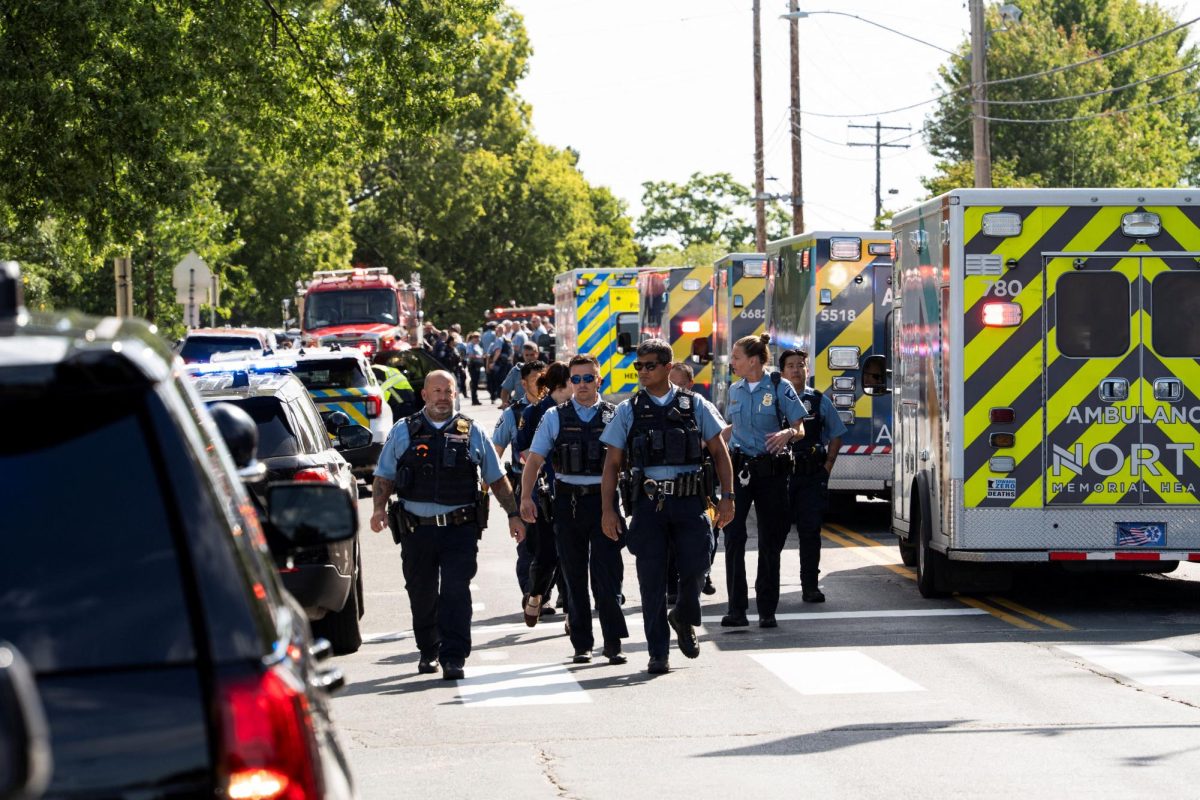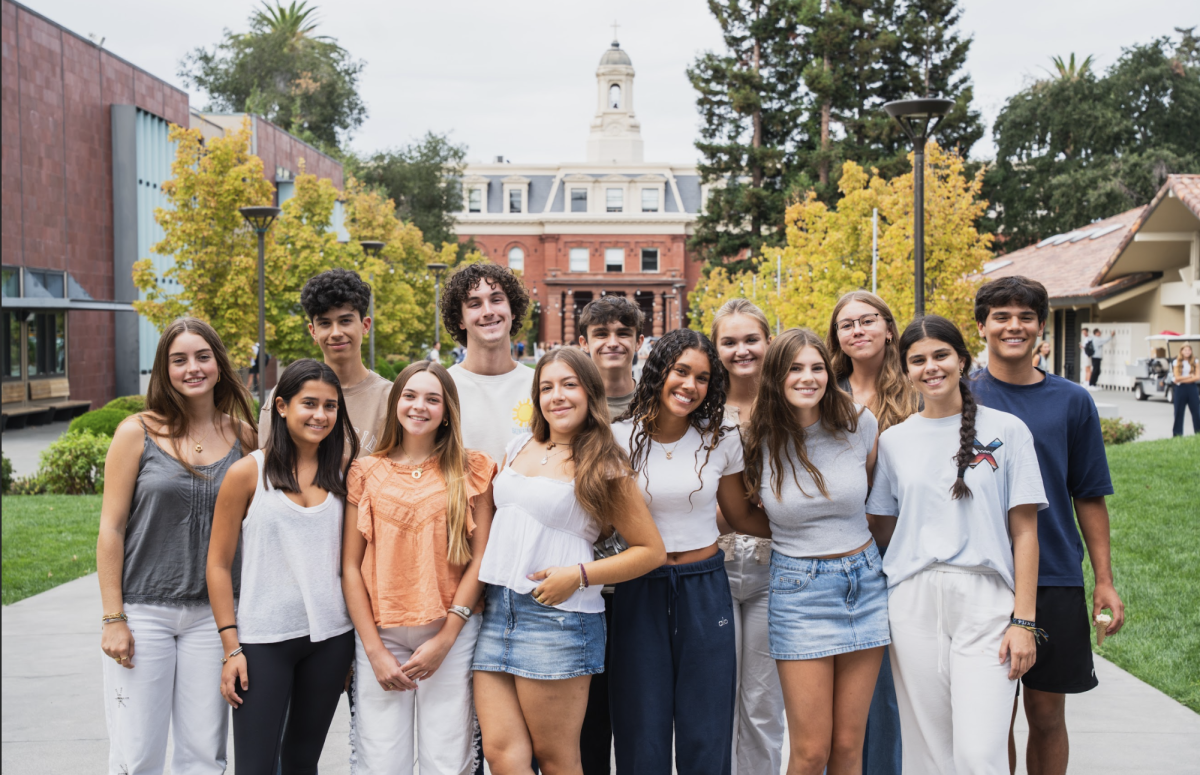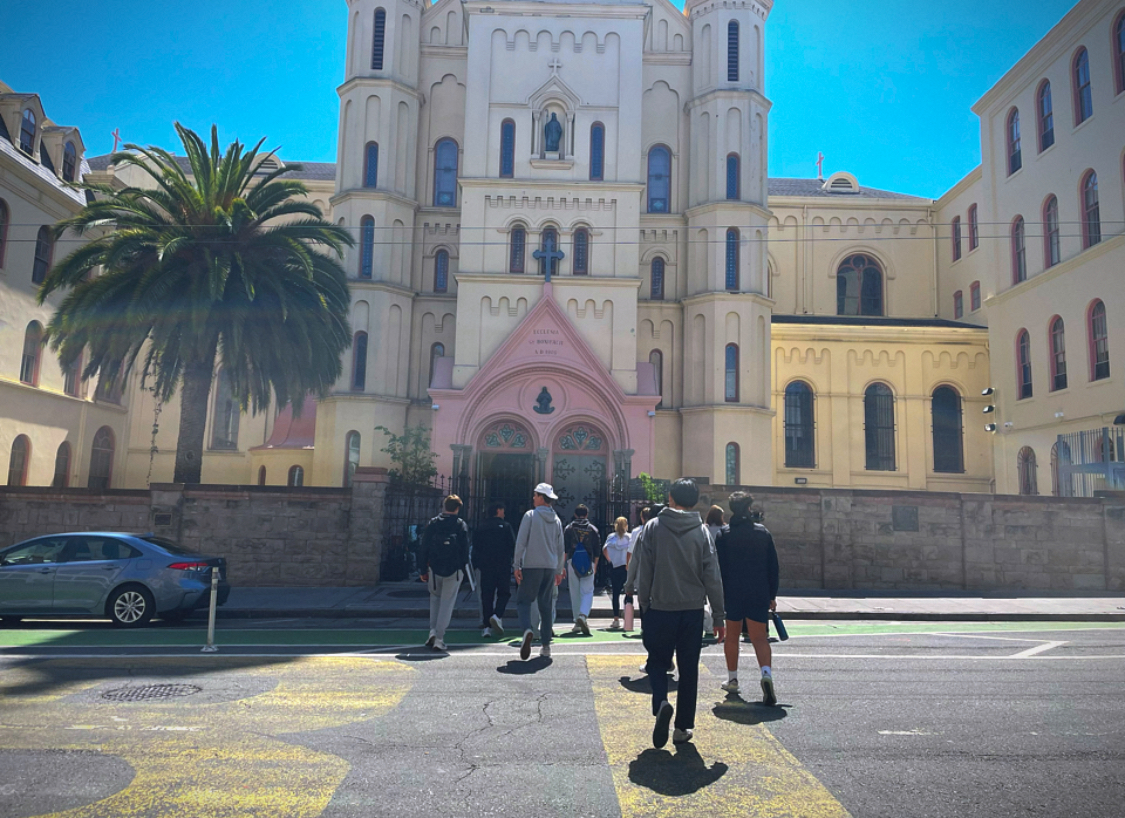On September 13, SHP’s Turning Point USA (TPUSA) club, a chapter of the national organization “whose mission is to identify, educate, train, and organize students to promote freedom,” announced on their Instagram account that Morgonn McMichael, a conservative social media influencer and TPUSA contributor would be speaking in Harman Auditorium on October 3. The event organizers claimed that she would “share her story about being a conservative woman” on a school campus and discuss “how to effectively use your voice” to stand up for one’s beliefs.
However, the club was forced to pivot and instead host McMichael at an off-campus venue after SHP administrators decided to prevent her from speaking at school. This prompted McMichael to post on X (formerly Twitter), stating, “When a school try’s to cancel your event don’t let them. Stand up and make the event even bigger! That’s what we did today in Menlo Park California! Sacred Heart Prep canceled my @TPUSA event on campus instead the chapter leaders rose up and made the event even better and are standing up to their tyrannical school. Stay tuned this is one we are fighting.”
Similar frustration with SHP’s decision has been expressed by students and parents, however, as a private Catholic institution, it is well within Sacred Heart’s legal right to restrict a guest from speaking on campus. Yet, many argue that this legal basis doesn’t necessarily make the decision just or fair, which is why SHP is working to implement a formal process and a clearer set of guidelines for inviting and hosting guest speakers in the future, according to SHP Principal Dr. Jennie Whitcomb. Previously, no official procedure for approving or disapproving campus speakers has existed, even following unexpected sexually explicit comments made by a keynote speaker at last year’s Social Justice Teach-In (SJTI). Rather, decisions have been made on a case-by-case basis in which a potential speaker’s “academic background and publications” are evaluated to determine whether or not the individual is fit to deliver a talk on campus. Since McMichael hasn’t published academic literature, SHP instead “looked at her social media profile.” According to Whitcomb, “some posts were interpreted as counter to SHP’s mission and the guiding principles of the RSCJ,” and therefore concerns were raised about the plan for her to speak in front of the SHP community. Most of her social media content is commentary on divisive political issues, some of which might be deemed homophobic or transphobic. However, McMichael did not plan to discuss such controversial topics, but rather the experience of being conservative in school–as conservatives tend to be outnumbered on high school and college campuses and thus have a more difficult time expressing their opinions than liberal students, according to Associated Press and University of Chicago polling.
Though McMichael was unable to attend campus, it is likely that certain members of the SHP community would have been unhappy had she been given a platform to speak in Harman as many strongly disagree with her views. Thus, the school was backed into a lose-lose situation in which backlash would be dealt no matter how the Prep attempted to handle the situation. But, the fact that the administration is extremely close to finishing a set of protocols that outlines how speakers will be vetted for a “full school audience” as well as for individual clubs and classes should make similar decisions less contentious moving forward.
Furthermore, Whitcomb strongly believes that the student leaders who planned to bring McMichael to campus were acting with good intentions, and that they did their best to follow a protocol “that wasn’t clear enough.” Ultimately, the need for the event to be moved off-campus was unrelated to any actions taken by the TPUSA club, but rather due to an administrative decision which took into account McMichael’s controversial social media profiles.
Leaders of the TPUSA club could not be reached for comment, but the description offered on TPUSA’s website about the chapter provides insight into their desire to host McMichael. It states that members “feel their political voice cannot be heard on campus” and that “woke ideologies are constantly introduced in class and religion courses have become a place of biased, one sided political views.” Given these concerns, “the group hopes to move towards being heard by the school.” In a sense, these sentiments were reinforced when McMichael’s event was forced to relocate, illustrating an example of the group’s obstacles to being “heard on campus” and “heard by the school.”
Although the decision to prevent McMichael from speaking in Harman wasn’t explicitly political, but rather an effort to uphold the goals and criteria of the RSCJ, some are concerned it was rooted in an attempt to censor conservative views. It is undeniable that SHP is located in an area that is more accepting of liberal ideology–according to the California Secretary of State, 52.6% of voters in San Mateo and Santa Clara counties are registered Democrats, compared to just 15.7% registered as Republicans. However, there is no evidence at this time indicating McMichael was barred from speaking simply because of her political affiliation.
Overall, Whitomb acknowledges that the decision was difficult and complex, and that parents and students alike deserve to be heard in their frustrations surrounding the event’s cancellation, but ultimately, as a Sacred Heart network school, the Prep seeks to abide by RSCJ guidelines, which, in the case of McMichael, were interpreted in a way that led the administration to prevent her from speaking on campus.







